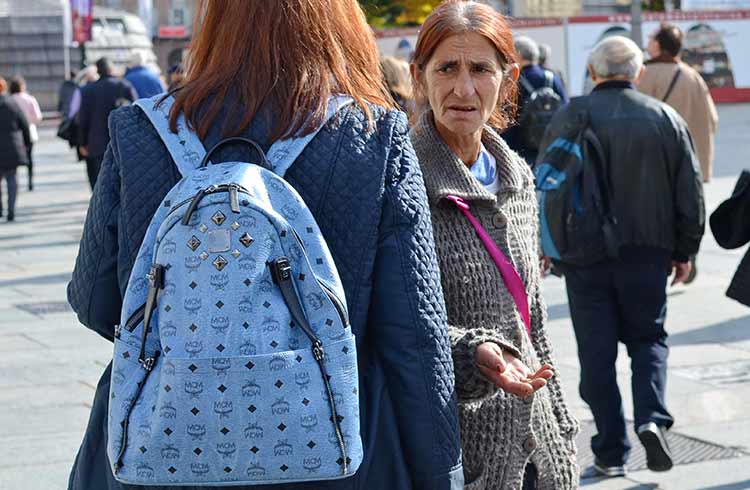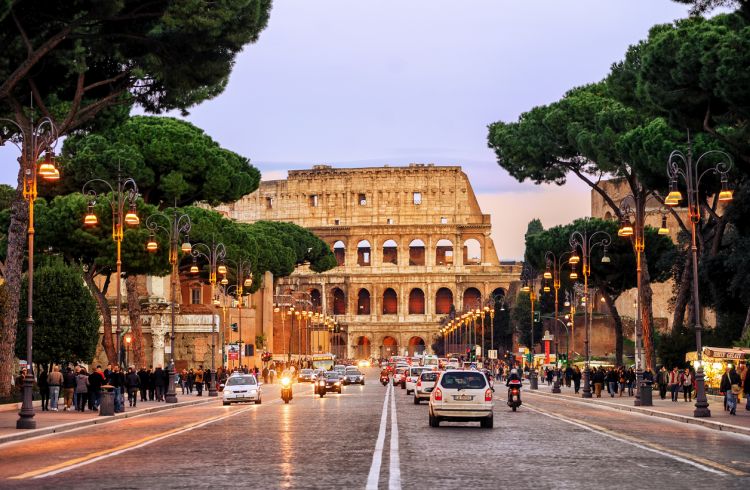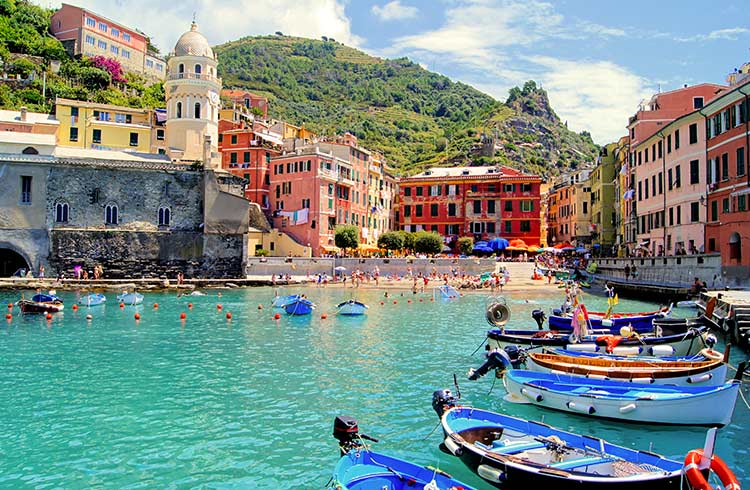6 Common Travel Scams Travelers Should Know in Italy
Like all con artists around the world, Italy's thieves and scammers will try to take advantage of visitors who don't know the language. Here are are some of the most common tricks in Italy.
 Photo © iStock/John Tsotras
Photo © iStock/John Tsotras
Travel scams have existed around the world as long as we’ve been traveling. Those in Italy are similar to what you’ll encounter in other European countries, with an Italian flavor of their own, of course. Here are some of the most common to keep in mind, while remembering the best way to avoid being scammed is to follow your instincts: offers or overtures that would seem dodgy back home, are rarely to be trusted in Italy either.
Overcharging in Italy
Stories of tourists hit by comically large bills for a round of gelato or a pasta lunch in Rome or Venice regularly hit the headlines. One of the easiest ways to avoid the possibility of being overcharged, either legitimately or not, is to find a bar or restaurant just a little away from the tourist site you’re visiting. Sometimes even a couple of streets will make all the difference. And, if you need a coffee or drink in a heavily touristed street do what locals do – stand at the bar rather than sitting down.
Ways to avoid an unpleasant surprise at the end of your meal include:
Always ask for a written menu, or look for it behind the bar, and ask for il conto (your restaurant bill or cheque) when it’s time to pay; if they make up the bill only on a piece of paper and you aren’t happy, press for a ricevuta fiscal – an official tax receipt.
Be aware that extra charges are often perfectly legitimate, if not always fair; they include a traditional per person pane e coperto – in essence, a cover charge, sometimes including bread for the table – and, mostly in touristy restaurants, a mandated servizio charge, that takes the place of a tip.
Understand that fish and seafood are often listed a etto, by the 100g, rather than by the dish.
In places with sea views, such as the Cinque Terre or Amalfi, always make sure to check for fine print that mandates a hefty minimum per person charge (one that they may insist be applied even to small children dining with you).
If you still believe you have been ripped off, you can refuse to pay, and if the restaurant threatens to not allow you to leave, call the police on 112.
Worried you’re being overcharged in a museum or sight? Ask to see the official entrance prices and, again, ask for an official receipt.
The fashion scam
A well-suited man approaches you just off a piazza in Rome’s centro storico or on a street near the Coliseum. He works for an 'insert-famous-Italian-fashion brand', he says, and has been at a fashion or trade fair. Oh, my brother’s wife’s from Queensland, Manitoba, and Kent too. I love you guys.
He’s got samples – cashmere coats maybe, or leather jackets, watches, silk scarves – and for various reasons such as needing cash because his card isn’t working or it’s lost, or he simply wants to offload his stock, you can have them ‘at cost’. Alarm bells should sound loud. Play along and you’ll end up down a few hundred euros with nothing but cheap rubbish in return. Note too, that any trade in counterfeit fashion goods, usually from vendors selling from a blanket on the street, is illegal in Italy, for both the seller and the buyer.
Transport traps
Although an increased police presence has somewhat tamped the scammers at Milan and Rome’s main train stations, they are certainly still working them. Don’t let anyone ‘help’ you when using a ticket machine. Likewise, don’t allow anyone to carry your luggage, even if they say they are official porters and have a trolly, as such a thing no longer exists. Both are a ruse to either distract you while you are robbed or, more likely, to demand a hefty ‘fee’ for their service or time.
When using public transport, make sure you know when and if you need to validate paper tickets, in case you encounter ticket inspectors, either real ones or imposters. It’s often easiest to buy a pass, either from a vending machine or from the tourist office, or pre-order it by mail.
Taxis are regulated throughout Italy – avoid anyone who isn’t driving an official metered vehicle. Always make sure the meter is turned on for you and note that taxis can legitimately charge extra for each piece of luggage and a cover for their journey to you, depending on which city you are in. Do your research so you know what these charges are and what a typical trip will cost.
Jewelry scam
No, you don’t want that friendship bracelet, you don’t want to feed the pigeons, nor is that ‘gold’ ring something you may have dropped. These are all a prelude for extracting various amounts of money from you, from a euro to five or 10 or more.
Watch out for these approaches in big city squares such as the Piazza del Duomo in Milan or Venice’s Piazza San Marco. If you find the approaches poignant, these are usually people in need of an income, rather than seasoned criminals, after all – quickly hand over some loose euros as a gift, but don’t engage.
Romani children
Groups of Roma children are often deployed by their families to perform or beg around tourist sights or city squares in Rome and Florence. Some have been known to use theatrical diversions such as offering pizza or seeking signatures for a petition or simply asking for help of some kind. These are rarely genuine overtures and are usually a ruse for pickpocketing. See this article for more information on how to avoid falling prey to pickpockets
Tax police scam
Italy’s Guardia di Finanza – it’s tax and anticorruption force – is entitled to ask you, the purchaser, to show your receipts after any transaction. This is done to ensure shop or restaurant owners are fulfilling their tax obligations by recording every sale. While it’s not a common occurrence, it can happen and, very occasionally, is faked by the unscrupulous. Officers will usually be in uniform but are sometimes dressed in plain clothes, which makes it hard to know if they are the real deal. You cannot be fined, even if you can’t produce a receipt, so if the ‘officers’ then ask to see ID, politely ask for the badge number, or call 112 and request assistance.
Related articles
Simple and flexible travel insurance
You can buy at home or while traveling, and claim online from anywhere in the world. With 150+ adventure activities covered and 24/7 emergency assistance.
Get a quote


9 Comments